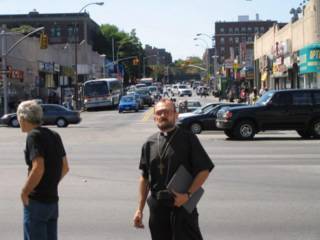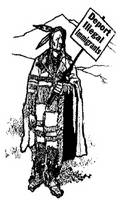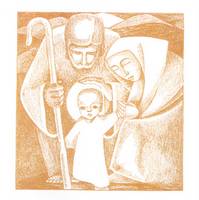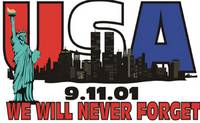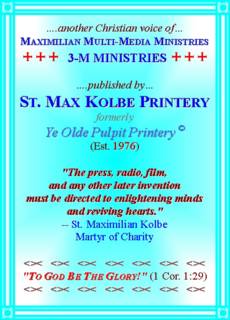PPP -- Are you MAN ENOUGH to wear this uniform?
Years later when my rage mitigated I simply prayed that the high and mighty prelates would eat meals of crow and humble pie; that episcopal palaces should be sold for their proceeds; that most bishops would be made cloistered nuns -- and priests would all be living in tenements or SRO's among their people. I also hoped that priests would again support themselves like those they serve and have the option of knowing spouses and children to come home to. (That day is now arriving sooner than I expected, but this is NOT the way I wanted to see it transpire.)
....So I, unwilling to wait for it, reluctantly crossed from the ultramontane side of the Roman Catholic aisle to the ultrajectine one to where I discovered persecuted remnants of the ancient Catholic Church fighting for their basic survival and clergy actually ministering this way... There I finally answered God's call to cease resisting my priestly vocation.
Today the Catholic Church is in major crises! This we know. Mass attendance in North America and Europe is plummeting. The Faith is poorly understood and hardly practiced anymore. Secular modernism is rapidly encroaching into fragmented families. Parishes are being merged, consolidated, disbanded or downsized. Few of those remaining have any full-time priests at all with clergy now stretching out to several parishes.
Whereas we once sent our eager missionaries throughout the globe, now third world countries are sending their clergy to the "unchurched" irreligious heathens here. Priestly vocations are at a record low. Without more good priests, things will only go from bad to worse, before they get any better.
Out of necessity, laypeople now occupy the roles that priests and religious once filled. Urgently needed institutions and charities are failing. Parochial schools -- our "nurseries of Faith" -- are closing in droves and "Cradle Catholics" are becoming a rarity. Now it seems like the devil is having a field day with us while the Church is going to hell in a hand basket. Or as the future Pope Benedict XVI remarked last Good Friday in Rome, "like a boat about to sink, taking in water on every side."
Most would attribute this to the scourge of sex crimes which were recently uncovered within the ranks of religious and clergy. People were also turned off by the clerical malpractice of their shepherds and the conduct of their pastors, either by commission or omission. (However, our edifices began to devolve decades ago -- right after Vatican Council II.)
The lapsed Faithful are forgetting that you can't judge a movement by those who don't live it, but by those who do. Despite the first priestly betrayer (Bishop Judas), who ministered with the 11 other Apostles, we still focus on their teachings and works through which we receive the sacraments of eternal life. Because all requests to defrock priests were sent to his Curial office, the future Pope Benedict XVI also exclaimed, "How much filth there is in The Church, and even among those who, in the Priesthood, ought to belong entirely to God."
That's why in order to reverse this downward spiral and rescue the straying sheep, our Lord Jesus Christ urgently needs YOU. Perhaps, most likely for good reason(s), you feel impeded, alienated or victimized from and/or by your former Catholic community. You might identify yourself with the walking wounded -- the marginalized who feel separated, slighted and disrespected.
If so, then I invite you to check out this particular traditional Catholic faith communion (the Traditional Old Roman Catholic Church a.k.a. the "North American Old Roman Catholic Church - Diocese of New York") which is bound together in love and orthodoxy. ALL of us are bound together in a common mission of pro-active service to each other.
Ours is an inclusive Christian Catholic church without walls - a catacomb remnant of the ancient Church. I'm not inviting you to join a group hug or a commune of "feel good" spirituality. Instead, come back to that ole' time religion which you pine for so very much. Our diverse faith communities are small and intimate. Our environments are humble. Put more guidance, spiritual nutrition, discipline and support back into your life. I'm not offering you pie in the sky or any empty promises. Rather, spiritual growth is hard work -- which you can't go alone. In the words of an African proverb, “It takes a village to grow a child (of God).” We've been here all along just waiting for you to come back home...
And most importantly, Jesus NEEDS and WANTS YOU! His Church needs workers, ministers, deacons and priests. There is a dearth of ordained ministry in the Catholic Church. (Yet as attrition takes out generations of failed nonsense, the current generations of "X" and "Y" are invigorating The Church with new traditionalist seminarians.) Let us help you discern the vocation that He is still calling you to, whatever it may be. All of us work together as common laborers in our Master's Vineyard.

CLERGY NEEDED for secular diocesan Priesthood! Inquire within: St. Lucy's Old Roman Catholic Cathedral at 802 Kent Avenue in the Williamsburg section of Brooklyn, NYC. Or e-mail this priest. (Under The Same Management for over 2,000 years.) God's sanctuary is a hospital for sinners -- not a hotel for saints. "You're not too bad to come in... You're not too good to stay out."
WARNING: Regarding my challenge in the above heading (R U MAN 'ENUF...?), sadly, some ordained men now lack the testitucular fortitude ('balls") to present their clerical witness in public. You might become misunderstood, reviled, spat upon, rejected - or worse. You would be battling the worse sort of enemies. That's why this abstracted "job description" is NOT for the faint of heart. Unless you're willing to get your hands dirty, your feet tired and knees sore then this isn't for you. Unless you're open to inner change and growth then turn away now.
Also, be aware: "We are laborers together with God." (I Cor. 3:9.) We are ordained to serve, worship, teach and pray -- not for pay! ("Whoever looks in The Church for something other than Christ is a mercenary." - St. Augustine) However, the fringe benefits are top-notch and out of this world. If you're still here with me then most likely you are cut out for this. Don't worry; our "boot camps" are not as rigorous and demanding as most others are.
This is basically what we are about: First I should explain our Church disciplines followed by our internal structure -- and then the requisite formation and training. Please stay with me here... (I'll keep my vocations pitch short and sweet.)
Discipline:
In promoting the intelligent assent and exercise of a correctly formed individual conscience, the ORCC upholds the Old Roman Catholic tradition of Primacy of Conscience as the final arbiter of moral, ethical and disciplinary decisions — even against highly authoritative contrary opinion. However, the exercise of conscience must be in accord with Church teachings and traditions and must not scandalize The Church or compromise Her ancient dogmas and Scriptural mandates. It stresses the distinction between ancient apostolic dogmas and Vatican doctrines while derogating some of the latter.
ORCC theology recognizes that the Church's teaching magisterium has two objectives: the correct formation of conscience, in which authority has an instructional quality; and the nurturing of a formed conscience to full maturity, in which case authority is guiding but not dogmatic nor dictatorial.
The ORCC, with a few select exceptions, follows the spirit of the Apostolic Canons and disciplines of the Pio-Benedictine Roman Rite Codex of Canon Law issued as Acta Apostolicae Sedis and entitled Codex Iuris Canonici (1917 A.D.). It also supplants some rules with the 1983 Code of Canon Laws. The exceptions are addressed and supplemented in the organizational documents and Diocesan policy and guidelines of each respective Old Roman Catholic Church judicatory. The ORCC is orthodox, conservative, active and staunch on all contemporary Pro-Life issues.
During the twelfth century, a negative and legalistic mindset pervaded the Church’s hierarchy. Celibate bishops and priests put great emphasis on sin and guilt in an effort to establish uniformity and control. It was during this period of Church history that marriage after divorce was declared to be a sin. Those who were divorced and remarried were no longer permitted to receive the Blessed Sacrament. Up to this time, marriages were adjudicated, consensually dissolved, and individuals were free to marry again - and free to receive Holy Communion. Bishops in the ORC Ultrajectine Tradition continue to exercise their ancient Pauline and Petrine privileges in this regard.
Canon 1752 * has been referred to as the "golden rule" of Church law. It states, "...the salvation of souls...is always the supreme law of the Church." It would seem that this canon makes it quite clear that all of the Church’s laws and efforts exist to serve the spiritual needs of the People of God. Any laws which work against this primary objective are, in effect, counter-productive and consequently of questionable validity.
[* Codex Juris Canonici, Code of Canon Law, Latin-English edition: translation prepared under the auspices of the Canon Law Society of America, (Washington, D.C.: Canon Law Society of America, 1983]
All ORCC clergy and employees are discretionary reporters of spousal abuse. However, by Diocesan ruling (enacted in 1998) they are mandatory reporters of child and/or elder abuse, neglect or maltreatment, and of pederast clergy or religious, even if suspected and regardless of rank and/or assignment, unless such information is derived under the inviolate “Seal of Confession”. Immediate reports are made to the Bishop who immediately refers them to the proper agencies. Law enforcement is notified first even if pathology is suspected or evident. Victims are encouraged to report any sexual abuse directly to the police. Clergy will be, and have been reported, arrested, prosecuted, deposed and laicized for serious criminal cause. There is no tolerance or "second chance" for such offenders.
Formation and Holy Orders:
The ORCC adheres to the ancient practice of ordination of an eligible male candidate to the four minor orders (Porter, Lector, Exorcist, and Acolyte), major orders (Subdiaconate) and Holy Orders (Holy Diaconate, Sacred Priesthood and The Episcopacy).
Unlike most of the Old Catholics or other protest-ants, the ORC Church does not commission presbytides (women presidents or deaconesses) nor ordains presbyteresses (female priestesses) although it affirms that women have a viable and essential role in the daily life of The Church. Women collaboratively minister as nuns, sisters, readers and presbytera (wives of deacons and priests) in non sacerdotal functions.
The ORCC does not discriminate based on age, economic status, race, marital status, most physical handicaps, national origin, lifestyle identity or orientation and with exception of the ordination of women, does not discriminate based on sex/gender.
Celibacy is optional for the clergy (who may NOT contract Holy Matrimony after their ordination to the Holy Diaconate), but normative (not mandatory) for the bishops. Celibate bishops are the norm, but not the rule as most of the Apostles were married. We have married deacons, priests and bishops, however, the ancient law of The Church is that unmarried men may NOT wed after their ordination to the Holy Diaconate and widowed and divorced clergy may NOT marry again.
[In accordance with the ancient Carthaginian canons (257 A.D.) and Canon 13 of the Quinsext Council of Trullo, (692 A.D.) the ORCC prescribes continence for all ordained married and partnered clergy during penitential times of prayer, fasting and Eucharistic liturgy. Aside from the canons and dogmatic decrees of the Seven Ecumenical Councils of the Undivided Church, the ORCC does not subscribe to various disciplinary decrees of the later General Councils — especially those 12 Century “old law” ecclesiastical disciplines mandating clerical celibacy and doctrines of homophobia as compiled in the Decretum ("The Concord of Discordant Canons") and legislated as Church canon laws by Pope Innocent II at the Second Lateran Council in 1139 A.D. Rather, the ORCC abides by the spirit of some of these guidelines rather then their letters].
The predominant focus for the formation of men considering service to The Church through ordained ministry or religious life as ORCC deacons, priests and religious is the monastic and episcopal schools under the aegis of the local bishop -- as was the Western custom from the seventh to the twelfth centuries in Europe and later during the colonial period in America.
Postulants gather at local houses of formation (primarily for spiritual, intellectual, and personal growth and discernment). Pope John Paul II, in his apostolic exhortation on the formation of priests, wrote, "The new generation of those called to the ministerial priesthood display different characteristics in comparison to those of their immediate predecessors. In addition, they live in a world which in many respects is new and undergoing rapid and continual evolution. All of this cannot be ignored when it comes to programming and carrying out the various phases of formation." (Pastores Dabo Vobis, no.3).
"It is not thou that shapest God
It is God that shapest thee.
If then, thou art the work of God,
Await the hand of the Artist Who does
All things in due season.
Offer Him thy heart,
Soft and tractable and keep the form
In which the Artist has fashioned thee.
Let the clay be moist
Lest thou grow hard
And lose the imprint of His fingers."
(-- St. Irenaeus, from Jeremiah 18: 1-6. & Isaiah 64: 7.)
Training is also instilled via diocesan seminaries, theologates and apprenticeships with supervised clinical/ministerial field experience. Seminarians, clergy and ministers also serve internships and must complete practicums and Clinical Pastoral Education (CPE) for an intensive experience of active, reflective ministry and/or other didactic course programs in missions, oratories, parishes and institutions for evaluation. Clerics are geared to extend themselves by programming their outreach efforts to teach and touch their potential parochians.
Obedience, spirituality, sacrifice, virtues, orthodoxy and loyalty to the Church are paramount attributes for all clerics. He must want to share enthusiastically in the agenda of The Church and champion Her causes rather than his own or any group he might be aligned with. He must want to be part of the unity of the Church and not caught up in dissent and disunity. He must want to imitate Christ (Philippians 2:1-18 and chapter 3). He must want to follow Christ (Luke 9:57-62) and evangelize His Word as missionaries!
Therefore, candidates for ORC Seminary are selected on the basis of their personal character, moral fiber, prayer life, and unabashed fidelity to Magisterial Church teaching. They undergo examinations, background checks, a battery of interviews, write their autobiography and submit fingerprints and photographs, medical clearance and psychological evaluations, sacramental certificates, proof of Canonical Annulment or Dissolution of Marriage (if applicable), educational portfolios, employment resumes and letters of recommendation.
Their psychological tests include the Minnesota Multi-Phased Inventory, the Thematic Apperception Test, the California 16PF Psychological Test and the Rorschach. Students and clergy transferring from other dioceses or jurisdictions must present their Commendatory, Pacifical and Dimissory Letters and Exeat of Excardination releasing them before ORCC incardination, faculties and/or charter of ministry is even considered.
Before advancement in orders, seminarians sign and swear a “Submission and Informed Consent Document,” their “Vow of Obedience & Oath of Stability,” an “Oath Against Modernism” and a “Statement of Beliefs.” Clergy incardinated from other dioceses also conform to these guidelines.
The ORCC also welcomes delayed vocations in psychologically and emotionally mature men — married, partnered or single — who are enriched with their career and life experiences.
My Lord God,
I have no idea where I am going.
I do not see the road ahead of me
Nor do I really know myself,
And the fact that I think I am following Your Will
Does not mean that I am actually doing so.
But I believe that the desire to please You
Does in fact please You.
And I hope that I will never do anything
And I know that if I do this,
You will lead me by the right road
Though I may know nothing about it.
In response to several inquiries from prospective candidates for Holy Orders in the Traditional Old Roman Catholic Church (TORC), I am including this information regarding seminary training for MEN from all countries with a vocation to the Holy Diaconate or the Sacred Priesthood.
Diocesan Ordinaries are usually the sponsor of a prospective seminarist. Laymen who are unattached to an ORC Jurisdiction may also apply to the seminary under the spiritual direction of the Seminary Rector who is the Archbishop of the St. Petersburg Archdiocese -- and of the historic ORC See of Caer-Glow (British Isles). Application is made via the local Diocesan Ordinary or by contacting:
St. Thomas Aquinas ORCC Seminary
Archbishop John J. Humphreys, Rector
1051 72nd Street North
Saint Petersburg, Florida 33710
Telephone/Fax: (727) 343-9111
DIRECTIONS:
[From the St. Petersburg area:] I-275 to Alternate 19;
Alternate 19 West to 66th St.;
66th Street North to 9th Avenue
[From the southeast coast:] I-95 North to PGA Blvd.,
PGA Blvd West to SR 710, SR 710 North and West to Okeechobee;
SR 70 West to Bradenton; I-75 North until I-275;
Continue north on I-275, and see below.
The primary reason for the Seminary's existence is to train men for the Priesthood -- to form them into "other Christs." If you feel that you have a vocation -- a disposition to live a holy life and a calling to do our Lord's work -- contact the Vocations Director, at the above Seminary address. (If you are not sure, you are in good company, so contact them anyway.)
Saint Thomas Aquinas ORCC Seminary is housed in a property dedicated by the ORCC Diocese of Florida on May 16th, 1998. The building, a former assisted care living facility, serves as a training center for future priests, a retreat house, and a meeting place for community organizations and the clergy.
The last year in which the Old Roman Catholic Church operated a seminary to nourish and sustain vocations to the priesthood was 1958. Therefore, a majority of clergy ordained in the last 43 years were trained “on the job” or were the products of seminary education sponsored by other Communions. That arrangement proved far from ideal both for prelates and their congregations. Hence, the establishment of a seminary for the Old Roman Catholic Church has long been on of the Church’s goals. On December 31, 1997, the Old Roman Catholic Church Diocese of Florida achieved that goal with the purchase of a building on a one-acre property in St. Petersburg, Florida.
The Seminary is named for the Dominican friar, Saint Thomas Aquinas, proclaimed by Pope Leo XIII as the patron of all Catholic education. The Scholastic philosophy of Saint Thomas is the "bedrock" of traditional Catholic scholarship. The use of Saint Thomas' name is auspicious, in that most of what passes for Modernist scholarship is based on the false philosophy of Existentialism -- a philosophy wholly at odds with that of their patron saint.
Seminarians are expected to complete undergraduate studies in philosophy, followed by a course in theology and Church administration. Candidates are not accepted without at least two years of college or its equivalent. At the discretion of the rector, credit may be given for courses successfully completed elsewhere, unless such courses were studied in an environment incompatible with the Catholic Faith. There are 4 primary components that our seminarians must be proficient in upon graduation: 1.) Sacred Scripture 2.) Church History 3.) Pastoralia and 4.) Theology.
The Seminary will attempt to accommodate the personal needs of the seminarian in arranging his course of study. A plan of study and residence must be agreed upon between the seminarian and the rector prior to admission to candidacy. In order to become immersed in the spiritual and liturgical life of the Church each seminarian must undertake studies during a cumulative total of not less than twelve months in residence at the Seminary -- longer residency may be necessary.
Nonresident course studies may be arranged at other appropriate institutions or as independent studies under the direction of the rector or his delegate.
Shortly after admission the seminarian will receive the cassock and first clerical Tonsure. With the consent of the Bishop, advancement through Holy Orders might take place as the seminarian in good standing fulfills these following academic requirements:
CLERICAL TONSURE
Survey of Philosophy
Selected World Literature I
Epistemology
Basic English Composition
Introduction to Psychology
Church History I
ORDER OF PORTER
Logic: Formal & Informal
Latin Grammar
Church Ceremonies
Advanced English Composition
Church History II
ORDER OF LECTOR
Metaphysics
Latin Grammar & Composition I
Natural Theology
Selected World Literature II
Rational Psychology
Natural Apologetics
ORDER OF EXORCIST
General Ethics
Latin Grammar & Composition II
Applied Ethics
Sociology
Old Testament Scripture
Gregorian Chant
ORDER OF ACOLYTE
Catholic Apologetics
Patristics
Canon Law I (1917)
Church Music, Polyphony
Latin Composition III
Selected World Literature III
SUB DEACON
Canon Law II (1917)
Dogmatic Theology
New Testament Scripture
Homiletics
Moral Theology
Church Administration
HOLY DIACONATE
Pastoral Theology
Liturgics
Ascetical Theology
Liturgy, Mass Preparation
Mystical Theology
Sermonology
Elective(s)
+ + + SACRED PRIESTHOOD + + +

Lord,
my God,
my One Hope,
hear me,
that I be not unwilling, through weariness,
to seek You,
but that I may always ardently seek Your Face.
Give me the strength to seek,
since You have made me in order to find You,
and have given me the hope of finding You more and more.
My strength and my weakness are known to You:
preserve the one
and heal the other.
My knowledge and my ignorance are known to You:
where You have opened to me,
receive me as I enter;
where You have closed to me,
open to me as I knock.
May I remember You,
understand You,
love You.
Increase these things in me
until You have wholly renewed me. AMEN.
(-- St. Augustine)










